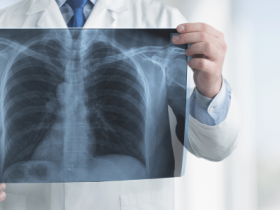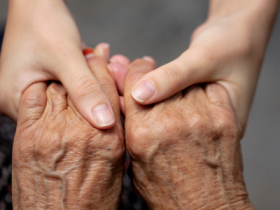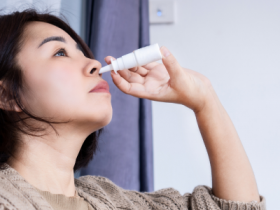Chronic rhinosinusitis is a complex and heterogeneous disease that imposes a significant socioeconomic burden. Notably, chronic rhinosinusitis has been associated with reduced quality of life, including both its mental and physical aspects. However, the degree to which chronic rhinosinusitis negatively impacts patients’ quality of life may be influenced by sociodemographic characteristics, such as age and sex.
Depressive disorders and anxiety are prevalent among the general population and have also been associated with diminished quality of life. In addition, an elevated risk of developing a depressive disorder has been reported among patients with chronic diseases.
It has been suggested that, in patients with chronic rhinosinusitis, an increased prevalence of depression and anxiety may act synergistically with financial burdens experienced by the patients to reduce their quality of life. Therefore, it is important to assess the risk of developing depression and anxiety among diverse populations of patients with chronic rhinosinusitis.
At the 2024 American Rhinologic Society (ARS) meeting at the COSM, held in Chicago on May 15–16, 2024, researchers from the Houston Methodist Hospital, University of Houston, and Texas A&M College of Medicine presented a poster on the relationship between chronic rhinosinusitis and depression and/or anxiety in a diverse national sample from the United States.
They conducted a retrospective, cohort study on data from the NIH All of Us Research Program, which is a diverse database, established to inform studies on a wide range of health conditions with the goal to improve health care. The current study encompassed the period between January 1, 2008, and December 31, 2018. Patients with chronic rhinosinusitis were identified and propensity score matched to healthy controls for age, sex, and income at a 1:5 ratio. Then, the included subjects were examined for the onset of depression and anxiety after a chronic rhinosinusitis diagnosis.
Univariate, multivariate, and survival analyses were used to compare the risk of developing depression and anxiety in patients with chronic rhinosinusitis to that in propensity score-matched controls. The multivariate analyses accounted for potential confounders, including lifestyle factors, socioeconomic characteristics, and comorbidities. Odds ratios (ORs), hazard ratios (HRs), and 95% confidence intervals (CIs) were calculated.
Overall, the study encompassed 5,622 patients with chronic rhinosinusitis and 28,110 propensity score-matched controls. Several lifestyle or socioeconomic factors, including sex, race, household income, and education, as well as certain comorbidities were associated with differences in the odds of developing anxiety or depression. Therefore, they were accounted for in subsequent analyses.
High prevalence rates of depression (48%) and anxiety (36%) were observed among patients with chronic rhinosinusitis. Moreover, the risk of developing both depression (HR 1.39; 95% CI 1.26–1.54) and anxiety (HR 2.79; 95% CI 2.46–3.15) was increased in patients with chronic rhinosinusitis in comparison to propensity score-matched controls.
Overall, this study demonstrated that patients with chronic rhinosinusitis from a diverse, large cohort from across the United States are at an increased risk for developing both depression and anxiety in comparison to propensity score-matched controls after accounting for lifestyle factors, socioeconomic characteristics, and comorbidities.
The findings of the study may have implications for healthcare providers caring for patients with chronic rhinosinusitis. Physicians should remain vigilant of the risk of depression and anxiety in this patient population. Moreover, they should appropriately screen their patients for symptoms of depression and anxiety, to ensure that these conditions are diagnosed in a timely manner, and that appropriate interventions can be initiated.
The authors of this study included Najm S. Khan, MBS; Meher Gajula, BS; Aatin K. Dhanda, BA; Lexi Goehring, BS; Masayoshi Takashima, MD, FACS; Renjie Hu, PhD; Jeffrey T. Vrabec, MD; and Omar G. Ahmed, MD.






